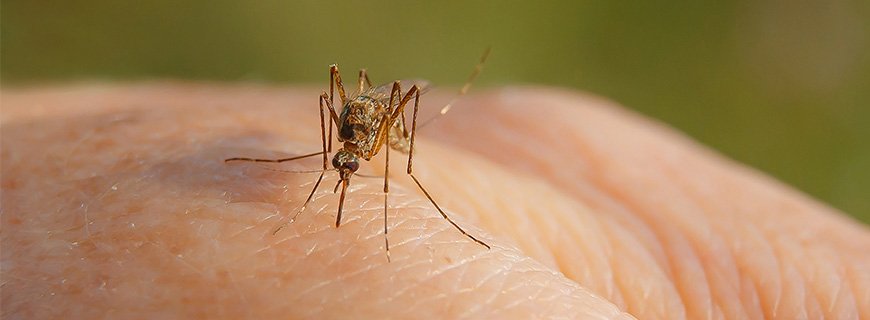Mosquitoes carrying West Nile Virus found in KFL&A

Recent surveillance efforts conducted by KFL&A Public Health has found the presence of mosquitoes carrying the West Nile Virus (WNV) in the Kingston, Frontenac, and Lennox and Addington region. Additionally, Public Health Ontario confirmed that a crow from the KFL&A region tested positive for WNV. These findings come as a result of ongoing mosquito collection and testing initiatives carried out by KFL&A Public Health, and with the support of the public and Canadian Wildlife Health Cooperative to submit and test deceased wildlife in our region.
WNV is transmitted to humans and animals through the bites of infected mosquitoes. While most individuals who get WNV exhibit no symptoms, about one in five infected persons may develop mild signs, including fever, headache, body aches, joint pains, vomiting, diarrhea, or rash. Most people who come in contact with WNV recover fully from these symptoms, however, less than one per cent of those infected may experience more severe symptoms and health effects. Individuals over 50 years of age and those with underlying medical conditions or weakened immune systems are at a heightened risk of severe conditions. The last reported human case in the KFL&A region occurred in 2018.
“The importance of taking preventive steps now that we've found mosquitoes with the West Nile Virus in our KFL&A area is key,” said Sarah Ryding, manager of environmental health at KFL&A Public Health. “Simple things like avoiding being outdoors during dawn and dusk when those pesky mosquitoes are buzzing around the most, wearing clothes to cover up, using bug sprays with DEET or Icaridin, and making sure there's no standing water around – these are all big parts of keeping the virus from spreading.”
While there is no specific treatment or cure for WNV, prevention is key to avoid infection.
Prevention measures include:
- Restricting outdoor activities during dawn and dusk when mosquitoes are most active.
- Wear long pants and loose-fitting long-sleeved shirts, socks and hat, light coloured clothing as mosquitos are attracted to dark colours.
- When going outdoors, use insect repellents that contain DEET or Icaridin and follow the manufacturer's instructions.
- Remove standing water as mosquitoes lay eggs in stagnant water (e.g., old tires, rain barrels, toys, wading pools).
- Use screens on windows and doors to keep mosquitoes out of your home.
If you find a dead bird on property:
- Avoid touching dead birds with bare hands where possible, instead, use a tool like a shovel to dispose of it. If you must handle the bird, wear rubber gloves and wash hands well with soap and water after handling.
- In most cases, dead animals can be put in the garbage or buried. If you are uncertain about disposal requirements, please consult your local municipality.
- Report dead birds to the Canadian Wildlife Health Cooperative.
Visit kflaph.ca/WNV for tips on how to protect yourself and loved ones.










